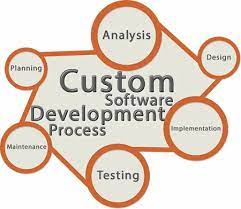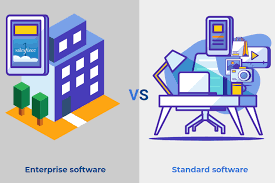Maximizing Success: Leveraging IT Business Consulting Services for Optimal Results
The Importance of IT Business Consulting Services
In today’s fast-paced and highly competitive business environment, having a strong IT infrastructure is crucial for success. Many companies, regardless of their size or industry, rely on technology to streamline operations, improve efficiency, and stay ahead of the competition. This is where IT business consulting services play a vital role.
What are IT Business Consulting Services?
IT business consulting services involve partnering with experts who specialize in technology to help businesses optimize their IT systems and processes. These services can range from strategic planning and implementation to ongoing support and maintenance.
The Benefits of IT Business Consulting Services
There are several benefits to investing in IT business consulting services:
- Strategic Planning: Consultants can help businesses develop long-term IT strategies aligned with their goals and objectives.
- Cost Savings: By optimizing existing systems and processes, businesses can reduce operational costs and improve efficiency.
- Risk Management: Consultants can identify potential security risks and implement measures to protect against cyber threats.
- Enhanced Productivity: Streamlining IT systems can lead to increased productivity and better collaboration among employees.
- Scalability: Consultants can help businesses scale their IT infrastructure as they grow, ensuring they have the resources they need to succeed.
Choosing the Right Consulting Partner
When selecting an IT business consulting partner, it’s essential to consider their expertise, experience, and track record. Look for a partner who understands your industry-specific challenges and has a proven track record of delivering results.
In Conclusion
IT business consulting services are invaluable for businesses looking to leverage technology for growth and success. By partnering with experts in the field, businesses can optimize their IT infrastructure, improve efficiency, reduce costs, and stay competitive in today’s digital landscape.
Understanding IT Business Consulting Services: Key Questions Answered
- What is the role of IT business consulting services?
- How can IT business consulting services benefit my company?
- What types of IT solutions do consulting services offer?
- How do I choose the right IT business consulting partner for my company?
- Can IT business consulting services help improve cybersecurity measures?
- What are the costs associated with hiring IT business consulting services?
What is the role of IT business consulting services?
The role of IT business consulting services is to provide expert guidance and support to organizations seeking to optimize their IT infrastructure and technology-related processes. These services play a crucial role in helping businesses align their technology strategies with their overall goals and objectives. IT consultants analyze existing systems, identify areas for improvement, recommend solutions, and assist in the implementation of new technologies. By leveraging their expertise, IT business consulting services help organizations enhance efficiency, reduce costs, mitigate risks, and stay competitive in today’s rapidly evolving digital landscape.
How can IT business consulting services benefit my company?
IT business consulting services can benefit your company in numerous ways. By leveraging the expertise of IT consultants, your company can gain strategic insights into optimizing its IT infrastructure to align with business goals and improve overall efficiency. These services can help in identifying cost-saving opportunities, enhancing cybersecurity measures, boosting productivity through streamlined processes, and ensuring scalability to support future growth. Ultimately, IT business consulting services enable your company to stay competitive in a rapidly evolving digital landscape and adapt to technological advancements effectively.
What types of IT solutions do consulting services offer?
Consulting services in the field of IT business offer a wide range of solutions tailored to meet the specific needs of businesses. These solutions can include IT infrastructure design and optimization, network security implementation, cloud computing integration, software development and customization, data analytics and business intelligence tools, IT project management, and IT support services. Consulting firms work closely with clients to assess their current systems, identify areas for improvement, and implement customized solutions that enhance efficiency, productivity, and overall business performance. By leveraging a diverse set of IT solutions, consulting services help businesses stay competitive in today’s rapidly evolving technological landscape.
How do I choose the right IT business consulting partner for my company?
When selecting the right IT business consulting partner for your company, it is crucial to consider several key factors. Start by assessing the consulting firm’s expertise and experience in your industry. Look for a partner who has a proven track record of delivering successful IT solutions tailored to businesses similar to yours. Additionally, consider the consultant’s communication style, as effective communication is vital for a successful partnership. Evaluate their approach to problem-solving and ensure they align with your company’s goals and values. By conducting thorough research and due diligence, you can choose an IT business consulting partner that best fits your company’s needs and objectives.
Can IT business consulting services help improve cybersecurity measures?
Many businesses often wonder if IT business consulting services can help improve cybersecurity measures. The answer is a resounding yes. IT business consulting services play a crucial role in enhancing cybersecurity by providing expertise in identifying vulnerabilities, implementing robust security measures, and developing comprehensive strategies to protect against cyber threats. With the constantly evolving landscape of cybersecurity risks, partnering with IT consultants can ensure that businesses have the necessary tools and knowledge to safeguard their data and systems effectively.
What are the costs associated with hiring IT business consulting services?
When considering hiring IT business consulting services, it’s essential to understand the costs associated with such partnerships. The pricing structure for IT consulting services can vary depending on factors such as the scope of the project, the level of expertise required, and the duration of the engagement. Some consultants may charge a flat fee for specific services, while others may bill by the hour or offer retainer-based arrangements. It’s crucial for businesses to discuss pricing details upfront and ensure transparency regarding costs to make informed decisions that align with their budget and goals.





